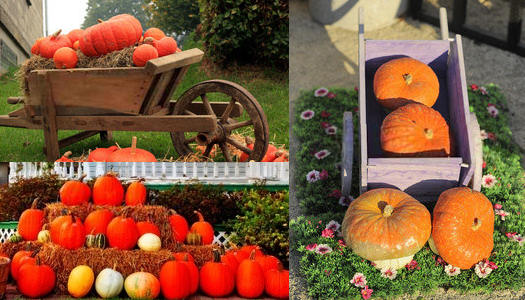What Is Organic/Green Cleaning?
Most women, like myself, live in the present; the here and now. Things like “Organic Cleaning” sound particularly unappealing, mainly because that name boldly states “More Work.” Today, we’ll be putting that rumour finally to rest. Organic Cleaning, or ‘Green Cleaning’ is being environmentally conscious of how the chemicals you use to clean, freshen, and do laundry in your home affect the world. What most people do not realize right away, is that it just so happens that our homes are part of the world. Indoors, and out are affected with the chemicals you use to clean.
Aerosol cans of air fresheners, spray bottles filled with chemicals will be used in homes all over the planet this spring, by consumers. They will continue to stubbornly ignore the fact that an air freshener is nothing more than a combination of chemicals. Just opening the windows this spring is an excellent way to eliminate many of the harmful gasses and organic pollution that has built up in your home throughout a long winter. Cleaning products, detergents, and soaps give off what are called “Volatile Organic Compounds” or just “offgas”. The offgas that builds up inside a home can eventually cause ear infection, and diarrhoea in infants, and in adult women, headaches, and even depression. Instead of filling your home with more pollutants this spring, i.e., a can of Lysol, try getting some fresh flowers from outdoors.
If you’re allergic to pollen, just open your windows, and let clean air circulate through your house as often as possible. Another solution, cheaper than most air fresheners, is just lightly spraying a mist of lemon juice and water mixture throughout a room, being careful for easily bleached fabrics. Also, buying non-flowering potted plants with bright leaves is another way to cut down on indoor pollutants; they breathe in the human breath that’s expelled, and other harmful gasses, and give off fresh oxygen, without bothering your allergies.
Among other examples of the harmful chemicals you use every day, is dishwashing detergent. It contains petroleum, which is non-biodegradable, and ethoxylated alcohols which contain carcinogenic compounds. Naturally, these are not only bad for you, but bad for whatever they land on and affect once they go down your drain, and out into the world. Although most people are aware that phosphates are no longer used in dish detergents because of their volatile and highly pollutive nature, others are not as aware that phosphates are instead put into dishwasher detergents.
Instead of using what’s on the shelf, you can instead take extra care and buy products from other sources. Some brands that distribute more eco-friendly detergents and cleaners are Ecover, Seventh Generation, Aubrey Organics and Vermont Soapworks. There are also little things you can do around the house instead, that are also cheaper. Vinegar can be used to clean virtually any surface, and eliminates laundry odours, as well as acting as a natural fabric softener. Lemon juice, or a mixture of baking soda and lemon juice can be used to bleach the stains from white fabrics. Baking soda also neutralises odours, and freshens rooms when placed discreetly about. Lemon juice will freshen a clogged or smelly drain; lemon wedges and ice cubes will sharpen the blades of your garbage disposal and freshen the scent when fed into it. The possibilities for cleaning without endangering not just your outdoor environment, but also your immediate indoor environment are endless. Take advantage of useful green cleaning tips this year, and keep a healthy home.
| Related Articles:
Summer Chores that Will Protect Your Home from Pests |

